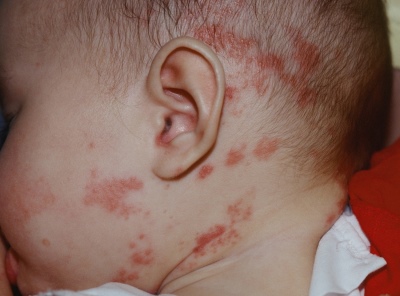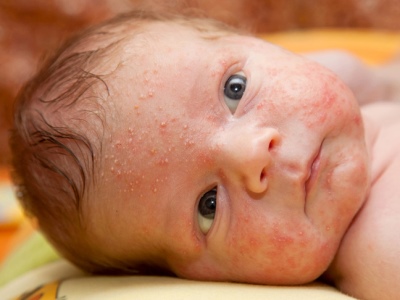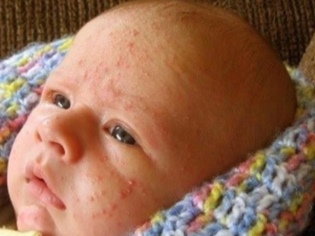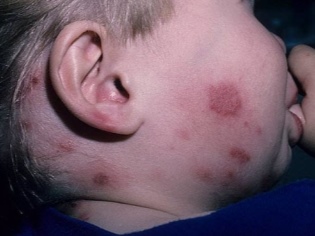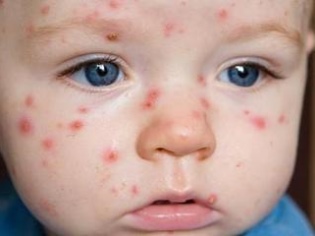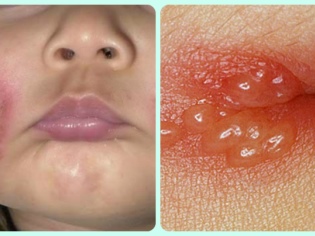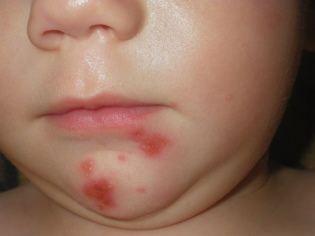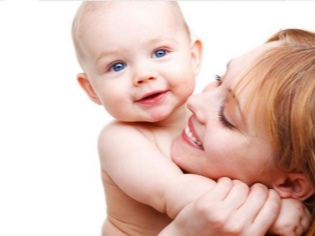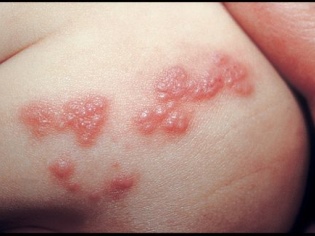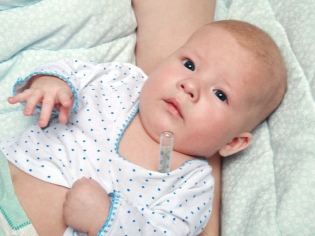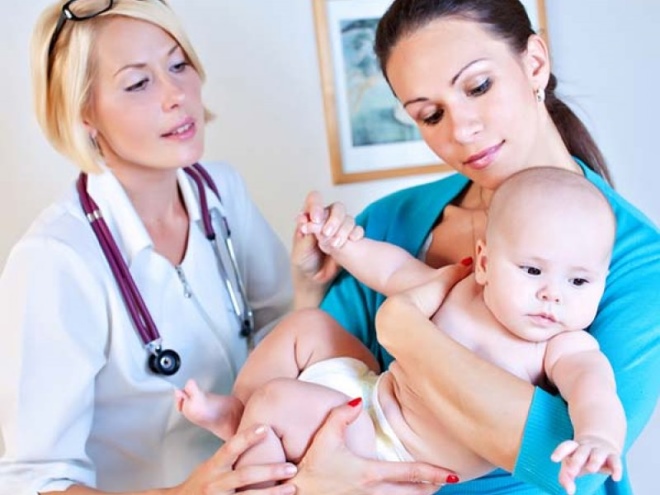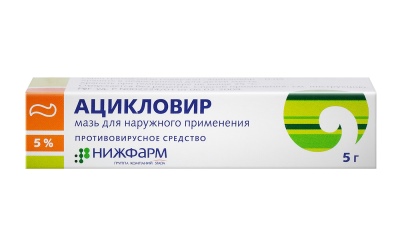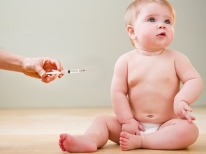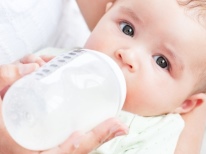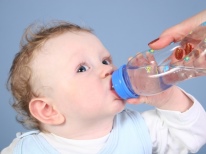Herpes in infants and newborns
Herpes is one of the first viruses that children encounter in their lives, because almost always the infection comes from the mother. For newborns, herpes infection is considered one of the most dangerous. What to do if a baby has herpes, you will learn by reading this article
Age features
Herpes viruses are very tricky. They can do no harm, existing in the human body for the rest of their lives, but they can go from the latent stage to the active stage and cause an acute disease, and then again "lie low." Usually in adults, herpes appears when immunity is weakened due to the disease, due to severe stress, nervous overstrain. In children, herpes develops for exactly the same reasons. However, there is an important nuance - the immunity of the infant is immature, it is always somewhat weakened.
Up to 6 months, the child is under the protection of maternal antibodies, he has innate immunity. It copes well with some respiratory viruses, opportunistic bacteria. However, it is rather difficult to resist the herpes virus.
The nervous system of a child under one year old undergoes constant intensive changes. Practically all varieties of the herpes virus are neurovirulent - they live in the cells of the nervous system, transmitting and spreading through the bloodstream. This can have extremely negative manifestations for the unformed nervous system of an infant — up to a fatal outcome, if we are talking about a severe congenital herpetic infection.
Varieties
The most common herpetic virus in babies is a virus of the first type. It is manifested by the appearance on the lips or in the area of the nasolabial triangle a noticeable rash that resembles blisters, pimples with watery contents.
Herpesvirus of the second type - genital herpes, its babies receive from the mother: either during pregnancy through the uteroplacental bloodstream, or during childbirth (through an infected birth canal). It is manifested by a small watery rash in the genital area, anus, and also on the face, around the lips.
Herpes virus of the third type in children causes a disease such as chicken pox (chickenpox). Chickenpox is rarely diagnosed in infants and toddlers up to a year. Probably, the antibodies that are in the mother’s blood provide sufficient temporary protection against the third herpes virus.
If the mother did not suffer from chickenpox, and in the family where there is a newborn, the eldest child fell ill with her, then with a high degree of probability the crumbs also show characteristic symptoms of chicken pox.
A newborn can become infected during childbirth — from a mother who, for example, suffered an acute infectious disease shortly before birth. Such herpes in infants can be very difficult. Hospitalization may be required.
The fourth type of herpes virus (Epstein-Barr virus) causes infectious mononucleosis. The fifth type of herpes virus is the second name - cytomegalovirus. It is transmitted from mother to fetus, infection is possible during childbirth and after birth. The sixth type becomes the cause of pediatric roseola or pseudorasnuha, the seventh and eighth types of herpetic viruses are not well understood. Doctors suggest that there is some connection between the appearance of such viruses in the body and the formation of malignant tumors - sarcoma and lymphomas.
All herpetic viruses enter the human body once in a lifetime. They can not be cured, they can not be rid of, they remain forever. After an acute illness, they turn into a latent “sleeping” state and may cause some inconvenience only during periods of adverse effects on the body damaging immunity factors.
How does the infection occur?
If the expectant mother has a herpes virus, and it is in a “dormant” stage, nothing threatens the fetus during pregnancy - if the woman watches over her health, prevent weakening of the immune system. Herpesviruses are dangerous if a woman became infected with them for the first time during their pregnancy. A primary infection, acute, often leads to spontaneous abortion in the early stages.
If the fetus survives, then often in its prenatal development there are significant violations, anomalies. It happens so that infection does not occur through the placenta, but only in the process of childbirth - through the mucous membranes of the birth canal. Such an infection develops after an incubation period, usually 1-4 weeks after the baby is born.
Infection with herpes is possible after birth.
If the child is infected through the placenta and birth canal rubella, cytomegalovirus, genital herpes, less often - Epstein-Barr virus, then after birth the baby can become infected with almost any of the existing types of herpesvirus.
In the next video Dr. Komarovsky talks about the features of herpes infection in children.
Even viruses of the first and second types can cause severe complications: herpes encephalitis (herpes of the brain), multiple lesions with a herpetic rash of internal organs. These conditions are treated in intensive care, intensive care wards. Among the most dangerous complications are epilepsy, paralysis and paresis, lesions of the optic nerve.
Toddlers catch herpes from adults with whom they contact. About 95% of all people on the planet are carriers of one or another herpetic virus, and they are transmitted by contact, through the mucous membranes, the skin, and sometimes by airborne droplets. If mothers and fathers have herpes on the lip at least once in their lives, they are carriers
Symptoms and diagnosis
Virus pathogens herpetic There are many illnesses, but all infections of this type have common symptoms:
- acute and rapid onset;
- the appearance of a characteristic herpetic rash;
- recovery period with complete disappearance of the rash.
The easiest way to recognize a herpes simplex virus in an infant is by the characteristic formations on the lip, which first look like separate vesicles and then merge into a rounded or oval plaque. The appearance of the rash is usually preceded by increased body temperature.
Genital herpetic infection, chickenpox, and infectious mononucleosis start with high fever, muscle and joint pain, headaches. Roseola is the most difficult to recognize, which begins with a high fever, and the rash appears on the body only after 3-5 days.
Diagnosis of the first two types of herpes and chickenpox causes no difficulties.
Concerning other types of herpes, even an experienced doctor may have doubts, because the initial acute stage is very similar to SARS or flu. That is why the called doctor often makes such a diagnosis, the parents fulfill all the appointments, they treat the baby.
About the true cause of the disease becomes known in the worst case in the hospital, where the baby with the mother get, if the infection has a severe course, complications. At best, the child once suffered a herpetic infection, parents will find out only during a large-scale medical examination (for example, when they register a child in a kindergarten or school). The presence of antibodies will show a blood test.
This does not mean that it is impossible to make an accurate diagnosis in principle.For this only one visual examination of the child is not enough, you need to do a blood test using PCR (polymerase chain reaction), which will show which virus the detected DNA traces belong to, whether there are antibodies characteristic of the carrier (IgG) - or your baby has an acute infectious disease in full swing (igm).
Treatment
If we talk about the safety of the child, it is best to undergo treatment of herpes infection in a newborn in a hospital where he will be watched around the clock. Children under one year old who have already passed out of the neonatal age can be left by a doctor for home treatment, but only if the infection is extremely mild. The medium and moderate forms, which are allowed for home treatment in children from 1 year old, should also be treated under the supervision of the medical staff of the infectious disease ward.
Almost all types of herpes infections in such small patients are treated “Acyclovir", And the drug is administered to the newborn intravenously - in the form of a solution for injection. Simultaneously with the antiherpetic agent can be prescribed anticonvulsants drugs, because the risk of seizures in newborns is great.
With herpes simplex virus (lip rash), children “over 3 months old” can be assigned “Acyclovir"In cream locally."
Especially dangerous for children of the first year of life is the first, acute stage of all herpetic diseases, associated with an increase in temperature - sometimes up to 39-40 degrees. High fever must be reduced with the use of antipyretics. For babies by age, Ibuprofen and drugs containing paracetamol are allowed. It is preferable for newborns to inject rectal suppositories with paracetamol.
On average, the treatment of herpes infection in very young children is a rather long process, it takes about 3 weeks.
It should be remembered that it is absolutely impossible to cure herpes, you can only alleviate the symptoms, prevent complications and put the causative agent into sleep mode for the rest of your life.
Self-treatment and treatment of herpes remedies in newborns and infants is strictly prohibited - serious consequences are possible. You can not treat a child with antibiotics, which do not have the slightest effect on viruses, but at the same time increase the likelihood of complications by several times.
Useful tips
Consider the following guidelines:
- Throughout the treatment the child must act enhanced drinking mode.
- Remove drying herpetic crusts (especially with chickenpox) is strictly prohibited - a secondary bacterial infection may join, there may be scars on the skin.
- Contagious child is considered from the first acute symptoms and ceases to be a danger to other children after the disappearance of the rash.
- The presence of a herpetic infection in the latent stage not a reason to postpone prophylactic vaccinations. They are temporarily delayed until recovery in case of acute herpetic disease. After recovery, the child can be vaccinated according to the national immunization schedule.
- After recovery, parents should pay special attention to strengthening the immune system of the baby.. If the body's defense is strong, then relapse is unlikely. The baby should eat right, feeding should be administered at the proper time.
Children under one year should spend as much time as possible in the fresh air. The apartment should maintain a certain temperature regime - no higher than 20 degrees. Good prevention of recurrent herpes - hardening, which parents can practice almost immediately after the appearance of the crumbs into the world.

